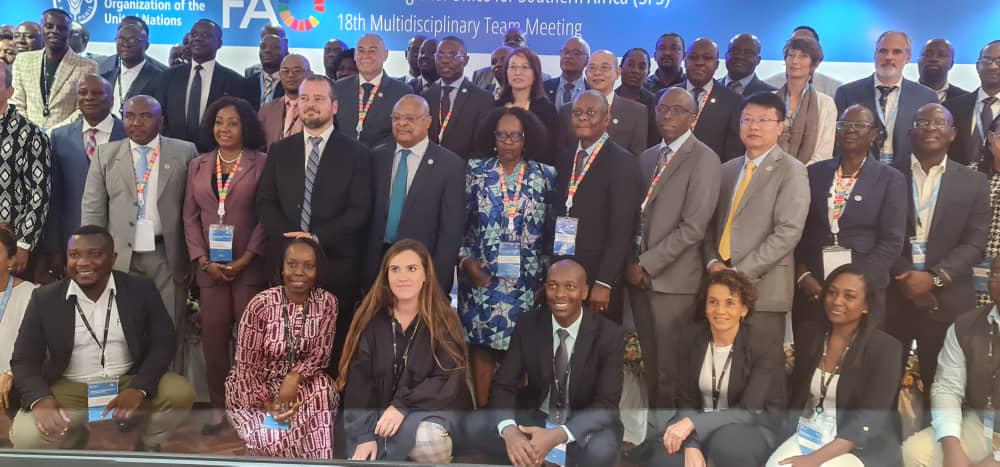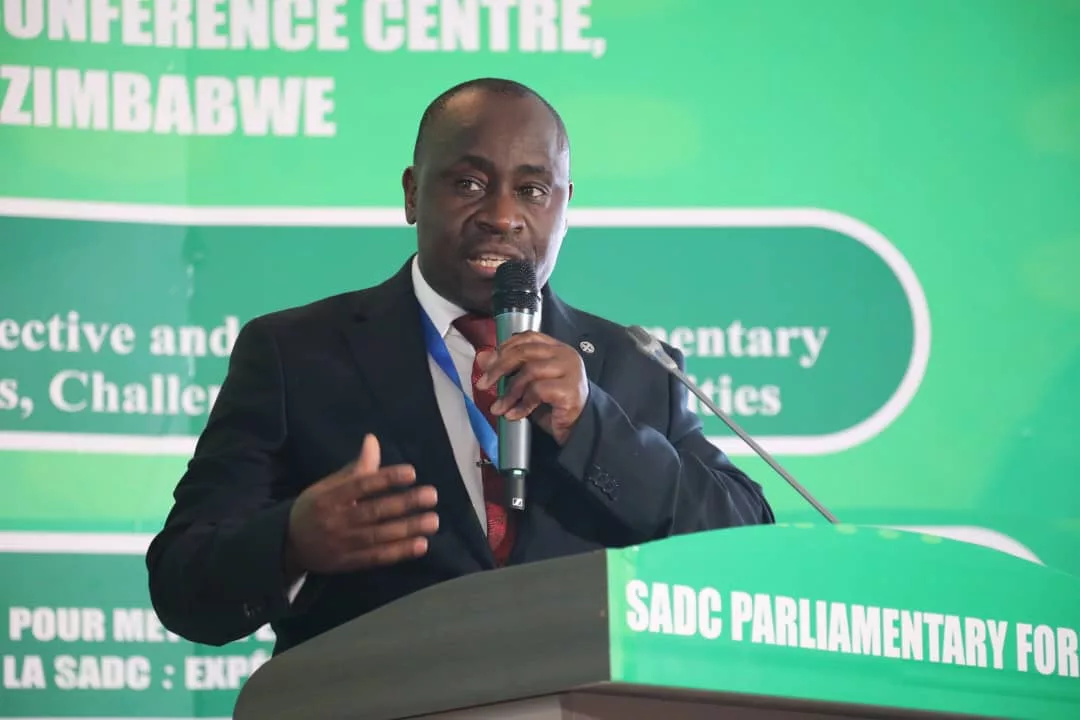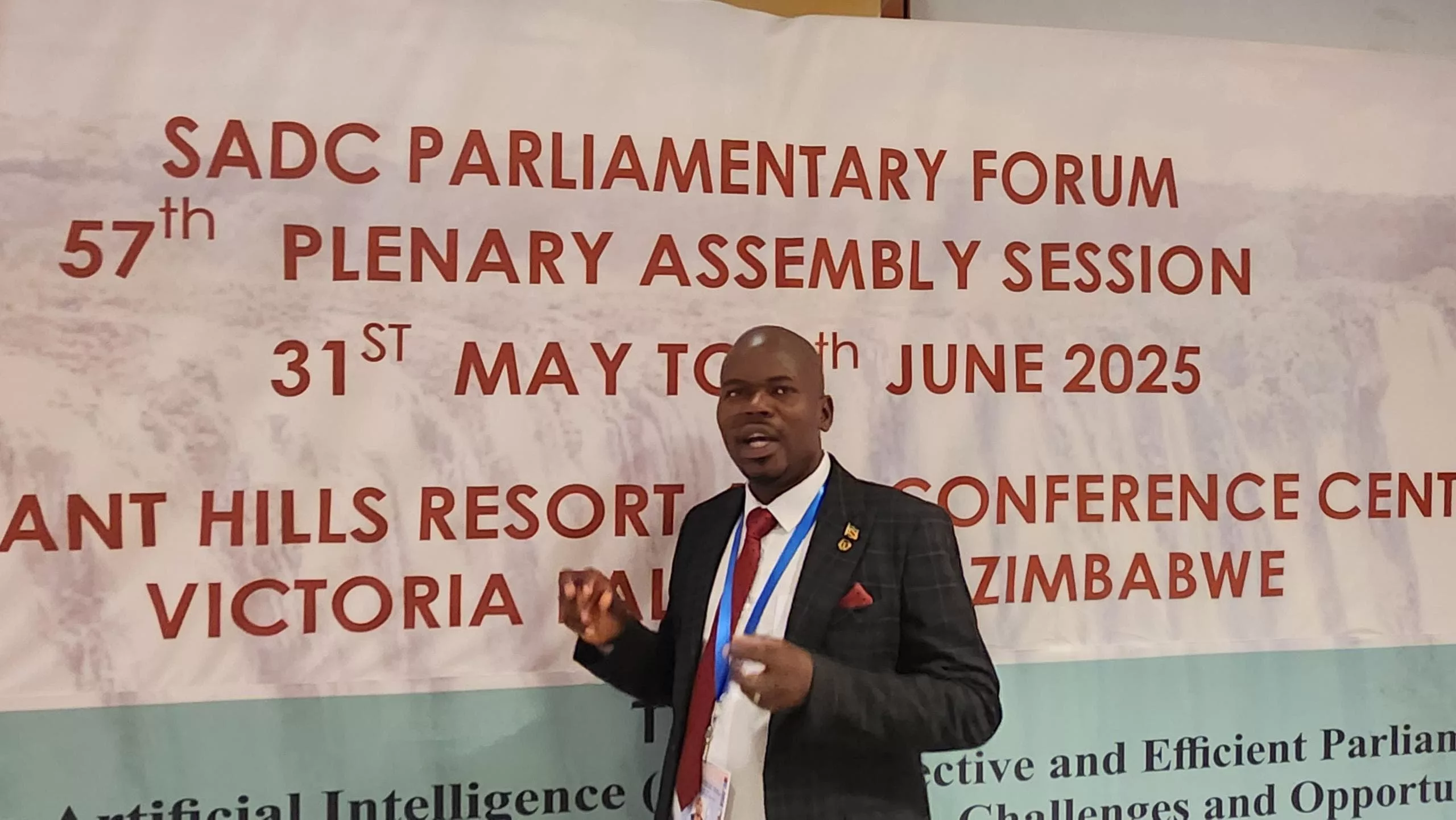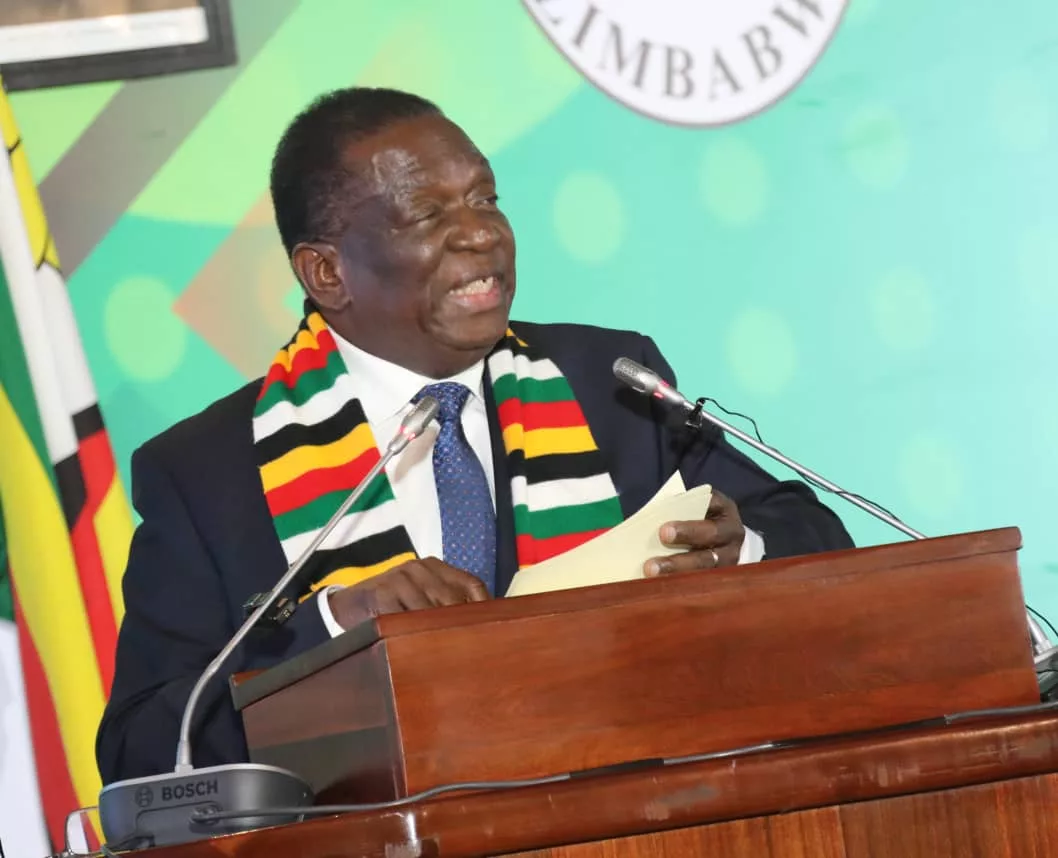|
Getting your Trinity Audio player ready...
|
The Food and Agriculture Organization of the United Nations (FAO) Subregional Office for Southern Africa convened a Multidisciplinary Team meeting to discuss and agree on how FAO can better support agrifood system transformation in Southern African countries.
The meeting was held today 11 November 2024 at the Rainbow Towers Hotel in Harare, Zimbabwe.
In official opening remarks on behalf of the FAO Assistant Director-General and Regional Representative for Africa, Dr Abebe Haile-Gabriel, Dr Chimimba David Phiri, Special Adviser to the Assistant Director-General, at the workshop held under the theme “Bolstering Climate Resilience in Southern Africa,” said the region continues to grapple with the impacts of climate variability, transboundary pests, and diseases, the vulnerability to global shocks and the economic and environmental fragilities associated with them.
“And yet, it is also a subregion with significant potential, opportunities, and possibilities. All these make FAO’s positioning and contribution even more relevant. FAO’s track record of delivering both on emergency response and on building resilience as well as harnessing economic opportunities will be our footprint and a signature for further commitment, partnerships, and collaboration.
“Our approach and business model should be fit for this high purpose. A central part of our approach has been mobilizing impactful partnerships to catalyze investment, foster stakeholder engagement, and accelerate the use of science and innovation. These themes—youth action, science and innovation, and investment—formed the pillars of the World Food Forum that FAO hosted in Rome last October. They are indeed foundational for transforming agrifood systems to achieve what we call the “Four Betters”: better production, better nutrition, a better environment, and a better life, leaving no one behind,” Dr Phiri said.
In his welcome remarks, Hon Vangelis Haritatos, the Deputy Minister of Lands, Agriculture, Fisheries, Water and Rural Development of Zimbabwe said the meeting will make critical technical decisions and formulate strategies that will shape the future of regional agri-food systems.
Addressing the same gathering, Mr Domingos Zefanias Gove, the Director of Food, Agriculture, and Natural Resources at the SADC Secretariat alluded to the critical importance of the regional economic community’s partnership with FAO as they jointly enhance agricultural productivity and resilience among SADC member states.
“As SADC, we count on FAO’s technical support in numerous areas of agriculture and agri-food systems development to progress with our Regional Integration process. Our longstanding partnership, formalized through a functional partnership agreement, underscores the strength of our collaboration.
“Our participation in this Multidisciplinary Team Meeting is crucial to contribute to regional programs and identify strategies to address the challenges affecting our food systems. FAO embodies the true spirit of partnership, going beyond mere words. We regularly (almost daily) engage with the SFS team to discuss regional agricultural issues, and our recent meeting in Harare, last October, to review our partnership agreement and plan for the next phase exemplifies this commitment to collaboration,” Mr Gowe said.
He said given the current food security challenges facing the region, FAO’s technical expertise is more crucial than ever.
“This high-level technical meeting provides an excellent opportunity for effective deliberations on this critical issue. Over the past five years, the SADC Regional Assessment Programme has estimated that over 40 million people are food insecure every year. According to the FAO, over 27 million people in southern Africa face food insecurity from the current agricultural season to the next harvesting period around April 2025.
“There is a unanimous agreement on the urgent need to transform agri-food systems to combat the alarming rates of malnutrition and food insecurity both regionally and globally. Such a complex undertaking requires committed and serious technical leadership, which we rely on FAO’s expertise to guide. We appreciate FAO’s technical leadership within the UN Country Team and your overall leadership on issues related to food security and resilience building,” HE Kallon said.






